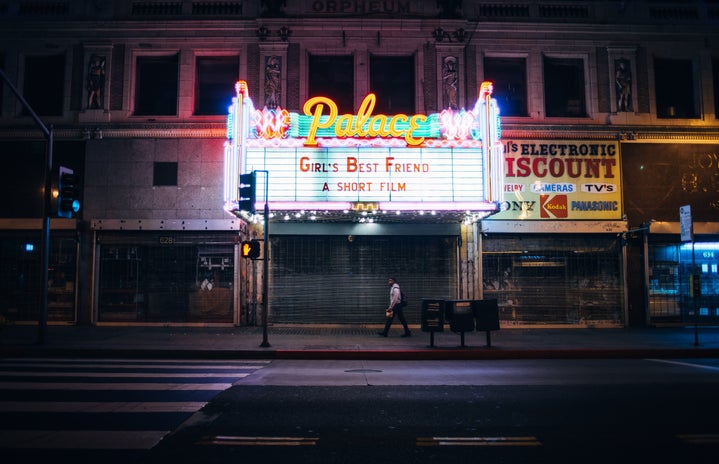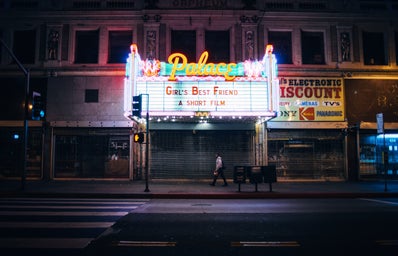Kung Fu Panda 2
I have always had a soft spot for Kung Fu Panda 2 (2011). It’s my go-to recommendation for movie nights. It’s a feel-good, heartwarming film that never fails to entertain and uplift. Animation films are undervalued because they’re often dismissed as simplistic or unfairly boxed in as “kids” movies. This misconception stems from years of animation being marketed primarily to families, but it is time we stop treating these films like cinema’s younger annoying sibling. Why shouldn’t animated films also get the same appreciation as other genres?
As Master Oogway wisely says, “The past is history, the future is a mystery, but today is a gift. That’s why it’s called the present.” This is one of the most significant quotes from the film. Master Oogway conveys a simple message in an engaging, digestible, and memorable way. These takeaways from light-hearted, family-friendly films are not just for kids. While they can feel less profound than insights from “serious” cinema, that doesn’t make these messages any less memorable. The simplicity of the message doesn’t make it childish. It makes it universal, connecting us all in its wisdom.
This film was one of my first introductions to kung fu, and its representation of East Asian culture introduced me to the beauty of martial arts. In the “Inner Peace” sequence, Po, having embraced his past, uses his newfound inner peace to beat his enemy Shen with graceful, fluid movements. While it’s true that East Asian traditions are often filtered through a Western lens and some elements are simplified for storytelling purposes, I’ll never forget the pride I felt seeing my culture being celebrated on the big screen. It’s a reminder of how animation can give voice to cultural stories in ways that feel personal and inclusive.
Of course, critics often dismiss animated films as childish or superficial. This bias stems from their bright visuals, fantastical plots, or family-orientated marketing. But there is nothing wrong with enjoying a “childish” film. Its charm makes its messages hit even harder.
This is why animated films are so important. While being fun and a great form of escapism, they also have the power to introduce complex ideas and celebrate diverse cultures in ways that are accessible to all. For children, they shape worldviews, teach essential values and create connections to their heritage. Zootropolis (2016) addresses themes of prejudice, bias and inclusion in a way accessible to children. This film encourages young viewers to reflect on perseverance, empathy and understanding of differences. For adults, they offer nostalgia, spark reflection and often provide new perspectives. Animated films are bridges, not just between cultures but across generations. They communicate the human experience in ways that transcend age.
Mulan (1998)
Consider Mulan (1998), a film that has left an indelible mark on both my childhood and adulthood. Mulan’s courage is profoundly inspiring as she defies societal norms to discover her strength. Set in ancient China, Mulan beautifully delves into its rich history and traditional values of family loyalty, honour and duty. As we witness her navigate the tension between tradition and individuality, it evokes a mix of pride and resentment – a shared conflict many of us experience when balancing personal aspirations with cultural expectations.
Mulan does more than present these cultural themes. It makes them relatable for all ages. Through Mulan’s journey, I have learned that being both proud of your heritage and brave enough to challenge its expectations is possible.
Spider-Verse series (2018 and 2023)
While films like Kung Fu Panda and Mulan stick to more traditional animation styles, the Spider-Verse series (2018 and 2023) pushed the boundaries of what animated films can be. Watching these movies feels like seeing a comic book come to life. With its striking, immersive visual style and use of multiple artistic techniques, it’s an experience unlike anything else in cinema.
Miles Morales, a Black and Latino teen, is the chosen Spider-Man. His story concerns cultural pride, self-discovery, and the realisation that heroism isn’t about fitting into a mould. Spider-Verse showcases a new kind of hero who embraces his unique identity while taking on the weight of responsibility.
The Spider-Verse films seamlessly blend clever narratives, humour, action, and emotional depth, keeping audiences engaged from start to finish. The balance between these elements makes the movie entertaining for all ages. But it’s the music that genuinely elevates these films. Pulsing with energy, the soundtrack weaves electrifying beats and soulful melodies, immersing the audience in Miles’ journey. As he soars through the sky, the music amplifies his sense of freedom and possibility. This syncs perfectly with his movements to heighten the film’s emotional resonance.
So, the Spider-Verse series should not be dismissed because it is animated. If anything, its animation is one of its greatest strengths. By pushing the limits of creativity, the filmmakers have created something that stands out in the broader cinematic landscape. These films might be designed to appeal to younger audiences, but that doesn’t make them less impactful.
The Spider-Verse series has revolutionised the superhero genre. With its bold and experimental techniques, it has carved out a permanent place, not just in animated film history but in the history of cinema. This series proves that animation is no longer limited to a niche but one of boundless potential.
How to Train Your Dragon series (2010, 2014 and 2019)
Then, there’s the How to Train Your Dragon series (2010, 2014 and 2019). Hiccup’s coming-of-age story – where his intellect and sensitivity, once dismissed in a masculine culture obsessed with brute force and strength – becomes his greatest strength and something we can all root for. And then there are the dragons. These creatures aren’t just animals; they each have their own personality, making them as lovable as the humans they interact with. These are a perfect mix of humour, heart and adventure, and they’ll always be a series I return to.
Animated films aren’t just “for kids”, but there’s no shame in wanting to reconnect with a childlike sense of wonder. That’s part of their charm- introducing kids to new ideas while offering adults a much-needed escape.
Animated films are far more than just a visual escape. They are rich with depth, emotion and meaningful storytelling. So, the next time someone dismisses animated films as “just for kids, ” remember there is nothing wrong with enjoying a cartoon.


